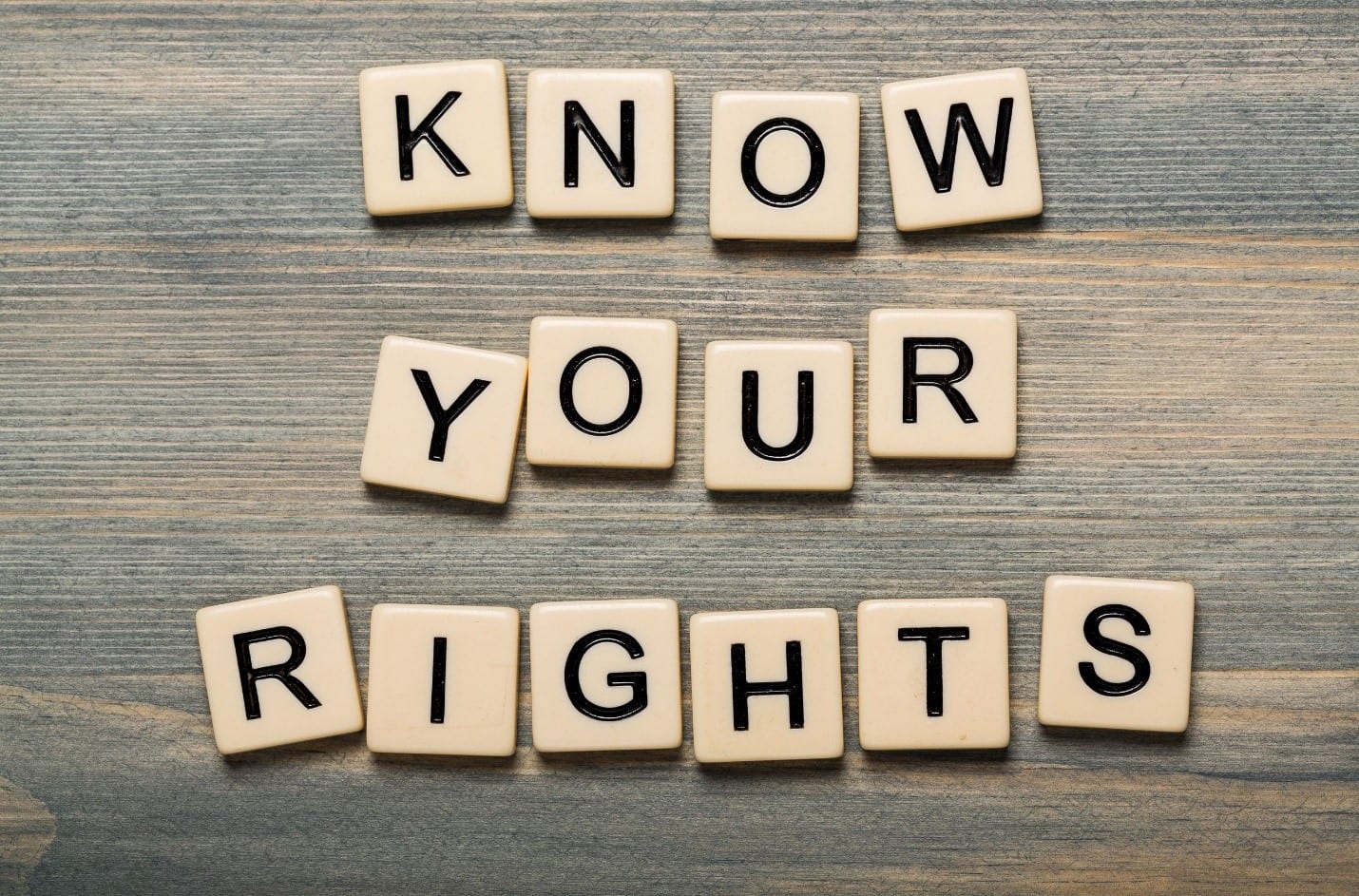
Do you know your rights when it comes to a police search?
In one recent case, three Minnesotans were arrested for possession of over 16 grams of methamphetamine along with drug paraphernalia. Employees of the Comfort Inn and Suites in the Town of Brockway called police to report suspicious activity in the lobby. Officers conducted a traffic stop and learned that one of the three passengers had an extradition warrant. They then found the drugs and paraphernalia after a K9 sniffed the vehicle.
In this case, police were able to conduct a search because a warrant was outstanding, but that’s not always the case. Let’s look at what the law says to understand other examples.
Know Your Fourth Amendment Rights
The Fourth Amendment to the U. S. Constitution protects against unlawful search and seizures by police officers. Here is how the amendment reads:
“The right of people to be secure in their persons, houses, papers, and effects, against unreasonable searches and seizures, shall not be violated, and no Warrants shall issue, but upon probable cause, supported by Oath or affirmation, and particularly describing the place to be searched, and the persons or things to be seized.”
The courts will weigh your Fourth Amendment rights to privacy against reasonable public safety and interest. A judge will decide whether the Fourth Amendment applies to your situation based upon four factors:
- What place was searched
- Who conducted the search
- Who was searched
- What reason existed for the search
Police must act reasonably when conducting searches and seizures. A general rule is that a warrant must be used for a search or seizure to be considered reasonable.
When a Warrant Is Not Required
A search and seizure may be considered reasonable without a warrant only under certain conditions. The value of criminal investigation will need to outweigh the defendant’s right to privacy. The Fourth Amendment offers greater protection for a search of a home, so a warrant is more likely to be issued for home searches. Public searches may not require a warrant if they are reasonable under probable cause.
Some situations when a warrant isn’t required include the following examples:

- Life-or-death situations
- Certain weapon seizures
- Certain automobile searches
- Evidence in plain view or feel
- When an officer has an articulable suspicion that an individual is armed and a pat-down suffices
- Consent voluntarily provided by defendant
If You Are Stopped By Police
You have more protections under the Fifth Amendment to the U. S. Constitution. It protects you from having to answer any questions from an agent of the government. You don’t have to answer, but weigh your choice carefully. Refusing to answer can cause law enforcement officers to suspect your guilt.
If you are stopped by police when driving, you are required to present a valid driver’s license and proof of insurance. In almost every other situation, Minnesota law protects you from having to provide your identity to the officer unless they have reasonable suspicion of criminal activity.
If a police officer suspects you of drug or alcohol use, they will likely require you to provide a blood, urine, or breath sample. If you refuse to submit to testing, the chance for stricter penalties rises much higher than if you submit. However, your right to contact a lawyer is protected before testing.

If you are searched, you are not required to provide consent to a search of your body, vehicle, or home. If police have reasonable suspicion, they can pat you down to search for a weapon. If you resist, you can be arrested. However, you have the right to verbally express your lack of consent to further search. Keep in mind that your consent to a search can have significant impact on your future rights.
If you are arrested, there’s nothing unlawful about asking a police officer why you’ve been arrested. You have the right to remain silent before police, and you have the right to talk with an attorney before being questioned. You also have the right to make a local call without the police listening in.
Defending Your Rights
If you have experienced an unlawful search and seizure, you can file a claim against the unreasonable behavior. If the search and seizure is deemed unreasonable, the evidence discovered in the process cannot be held against you in court. You may even be able to file a civil lawsuit.
Contact an experienced criminal defense attorney today for a free review of your case.
About the Author:
Christopher Keyser is a Minneapolis-based criminal and DWI defense attorney known for fighting aggressively for his clients and utilizing innovative tactics to get the most positive results. He has been featured in numerous media outlets due to the breadth and depth of his knowledge, and recognized as a Minnesota Super Lawyers Rising Star (2014–2015), a Top 100 Trial Lawyer (2013–2015), and a Top 40 Under 40 Attorney (2013–2015).





